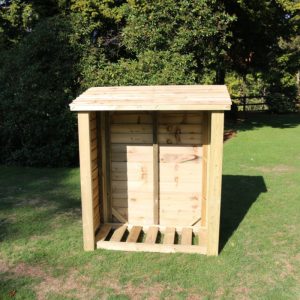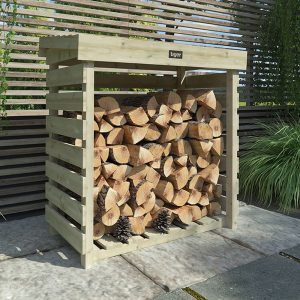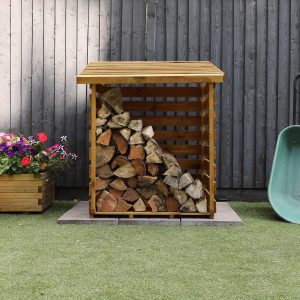For those seeking to maintain the neatness and dryness of their firewood, the Loxley Lean To Log Store is a perfect solution. This log storage unit not only functions as a practical organizer but also enhances the ambiance of your outdoor space, whether it be a fire pit, wood stove, or chiminea. With its slatted sides allowing for optimal air circulation and a raised floor overlapping a timber board roof, the stored wood remains protected from the elements, particularly rain. The design of this store exudes a charmingly rustic aesthetic that complements any patio or garden environment. Crafted from sustainably sourced timber with a rich golden brown finish, this unit is both environmentally conscious and visually appealing.






































